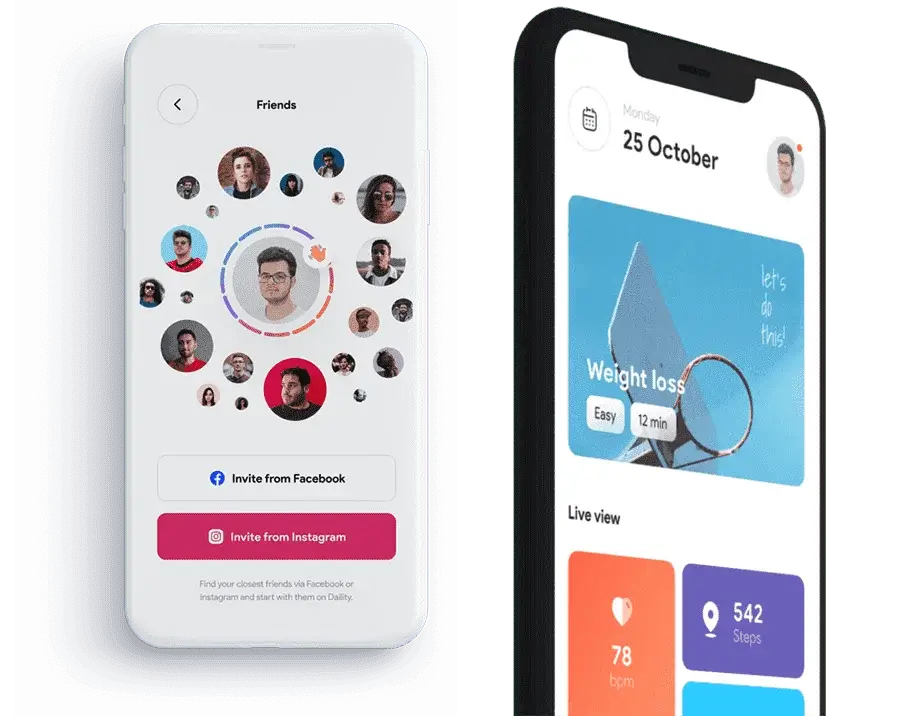-
Ecommerce
-
E-Commerce Platforms
-
 Custom E-commerce Development
Custom E-commerce Development
Build custom ecommerce in MERN stack, Laravel, VueJs, Yii, Python
-
 Adobe Commerce (Magento)
Adobe Commerce (Magento)
Magento is now Adobe Commerce. B2C, B2B, and D2C in one platform
-
 OpenCart
OpenCart
Open-source eCommerce easy to manage an online store
-
 Shopify
Shopify
Easy to develop ecommerce website with built-in hosting service
-
 WooCommerce
WooCommerce
WooCommerce is an open-source e-commerce plugin for WordPress
-
-
-
 Optimizely (Episerver)
Optimizely (Episerver)
Cloud-based high-end built-in ecommerce platform, complete suite for digital commerce
-
 Squarespace
Squarespace
Create a customizable website or online store with an all-in-one solution
-
 Ecwid Ecommerce
Ecwid Ecommerce
Hosted cloud commerce platform, help small business merchants to easily set up a store
-
 PrestaShop
PrestaShop
Freemium ecommerce platform, third-party developers to sell themes & modules to merchants
-
-
Internet Implementation
-
 eCommerce SEO
eCommerce SEO
Optimize website & increase online store's rankings organically in SERPs
-
 eCommerce SMO & SMM
eCommerce SMO & SMM
Post & promote products through Social media platforms. Social media optimization & marketing
-
 Payment Gateway integration
Payment Gateway integration
Integrate single or multiple payment gateways for the online payment
-
 Shipping API integration
Shipping API integration
Shipping APIs integrations help to streamline delivery services
-
 Omnichannel Integration
Omnichannel Integration
Integrating multiple channels and share the products details
-
-
-
 Meta Commerce Integration
Meta Commerce Integration
Integrate meta Commerce account with ecommerce inventory
-
 Google Content API integration
Google Content API integration
Content API for Shopping integrate with Google Merchant Center and ecommerce inventory
-
 ERP integration
ERP integration
360° Integration of ecommerce site front-end and back-end to ERP
-
 CDN integration
CDN integration
Distribute server traffic and improves loading time and provide a better user experience
-
-
E-Commerce Platforms
- Web & App Development
- Web Development
-
 Custom Web Design Development
Custom Web Design Development
Develop custom website in PHP Laravel, Yii, codeigniter, ReactJS
-
 WordPress Website Design
WordPress Website Design
website builder- Theme based website design and expand with plugins
-
 Web Portal Design
Web Portal Design
Business-to-Business(B2B) and Business-to-Consumer(B2C) portal development
-
-
-
 CMS Website Development
CMS Website Development
Develop custom CMS websites with tailored functionality.
-
 Web Application Development
Web Application Development
Small & Medium web app devlopment based on the in-house requirement
-
 Website Maintenance
Website Maintenance
Monitoring and updating site up to date. Functionality, content, and fixing broken links
-
- App Development
-
 IOS Mobile Application
IOS Mobile Application
Develop native apps for iOS
-
 Android Mobile Application
Android Mobile Application
Develop native apps for Android
-
 Hybrid Mobile Application
Hybrid Mobile Application
React Native Hybrid Mobile App development
-
-

Start Business Online
Looking to develop a website or mobile application, contact us for the free consulation!
Contact Us
- Web Development
- Digital Marketing
-
Digital Marketing
-
 Social Media Marketing
Social Media Marketing
Promote brand/products on Facebook, Instagram, Twitter, LinkedIn, Snapchat, TikTok
-
 Google PPC Ads
Google PPC Ads
Advertise online with pay per click (PPC) search ads
-
 Google Display Ads
Google Display Ads
Image and text ads on the Google Display Networks
-
 YouTube Video Marketing
YouTube Video Marketing
Promote your videos on YouTube
-
 SMS Marketing
SMS Marketing
Send SMS to your clients or 5+ Million Targeted UAE Database
-
 Search Engine Optimization (SEO)
Search Engine Optimization (SEO)
Improve your website visibility organically on Google and Bing
-
 Email Marketing
Email Marketing
Cost-effective ways to send personalized & targeted campaigns
-
- Business account set up
-
 Google Business Profile & Map Listing
Google Business Profile & Map Listing
Get Listed on Google. Create business Profile and Google location map
-
 Amazon Business Account setup
Amazon Business Account setup
Amazon Seller account setup. Launch your ecommerce business with Amazon
-
 Noon seller account setup
Noon seller account setup
Need to sell your products on noon? To start set-up Noon account
-
 Fresha Business account setup
Fresha Business account setup
Salons and Spas booking website. Beauty and wellness destination
-
-
Corporate branding
 Logo Design
Logo DesignCreate your own and unique logo
 Brochure & Office Stationery
Brochure & Office Stationery
Creative designs - Marketing tool to advertise the business/product/service
-
 E-brochure design
E-brochure design
Design custom eye-catching e-brochures with your services & projects
-
 Content writing
Content writing
Content writing for websites, brochures, and marketing purpose
-
 Video production
Video production
Corporate video production & products shoot
-

-
The right digital marketing partner
Maximise your company/brand reach through Local or international digital marketing with our certified team.
Contact Us
-
Digital Marketing
- Hosting Plans
-
Web Hosting
-
 VPS Hosting
VPS Hosting
Virtual Private Server hosting (VPS hosting)
-
 Cloud hosting
Cloud hosting
Microsoft Azure, Amazon AWS, Google Cloud
-
 Shared hosting
Shared hosting
Suitable for start-up companies
-
-
Business Email
-
 Google workspace Email Plans
Google workspace Email Plans
Gmail Business Email: Business Starter, Standard, Plus, Enterprise plans
-
 Microsoft 365 Email Plans
Microsoft 365 Email Plans
Microsoft Business Email: Business Basic, Standard, Premium plans
-
 Zoho Email Plans
Zoho Email Plans
Zoho Microsoft Business Email: Lite, Standard, professional, Workplace plans
-
-
Other services
-
 Domain Registration
Domain Registration
Register domain name for your business. Extensions: .com, .ae, .org, .info, .biz, .me
-
 SSL Certificates
SSL Certificates
Secure your website with SSL. Certificate types: DV, EV, OV
-
 Digital Accessibility Innovators
Digital Accessibility Innovators
This the Web Content Accessibility Guidelines version 2.0 (WCAG 2.0).
-
 Web 2.0 vs web 3.0
Web 2.0 vs web 3.0
Web 2.0 focuses on reading and writing content. 3.0 focuses on creating content
-

-
Hosting & business email partner
Discover the best hosting and business email plan for your business.
Contact Us
-
Web Hosting
- Products
- Products
-
 Travel Portal Development
Travel Portal Development
API based B2B & B2C Flight, Hotel, Car and Activity booking portal
-
 School Management System
School Management System
Automate teachers and administrators work
-
 Product Dictionary Management System
Product Dictionary Management System
Search product & brands availability and quantity.
-
-
-
 Student Learning System(LMS)
Student Learning System(LMS)
Online learing portal for schools and institutions
-
 Clinic Management System
Clinic Management System
Clinics software for financial, clinical & operational processes
-
 Employee Overtime Management System
Employee Overtime Management System
Calculate the overtime based on the punch details to calculate the salary of employees from different departments.
-
-
-
 Procurement Management System
Procurement Management System
To automate the process of acquiring goods from suppliers in an efficient & cost effective manner
-
 Waste Oil Management System
Waste Oil Management System
Combines the tasks of oil providers, collection agents, accountings and billings
-
-

-
Automate
in-house daily activitiesWeb applications helps to increase the productivity and automation of companies specific task.
Contact Us
- Products
- Get to know us
-
All About Tomsher
 Who we are
Who we are
Premium IT software web devlopment & digital marketing company
-
 Our clients
Our clients
Global and local brands who trust us for their online presence
 Our Works
Our Works
Explore our project portfolio to get to know our capability
 Contact Us
Contact Us
Contact us for your online presence and marketing requirements
- General
 Careers
Careers
Openings for developers, designers, digital marketing, sales executive
 Blogs
Blogs
Technology update and new releases
 FAQ
FAQ
Find the answers for your questions related to our services and products
 Privacy Policy
Privacy Policy
Our policies to serve you better
 Terms & Conditions
Terms & Conditions
Know the terms to keep our relation strong
-

-
The right consultation partner for your business
Get online presence and increase your business to next level with the help of our web & digital experts.
Contact Us
-
All About Tomsher

